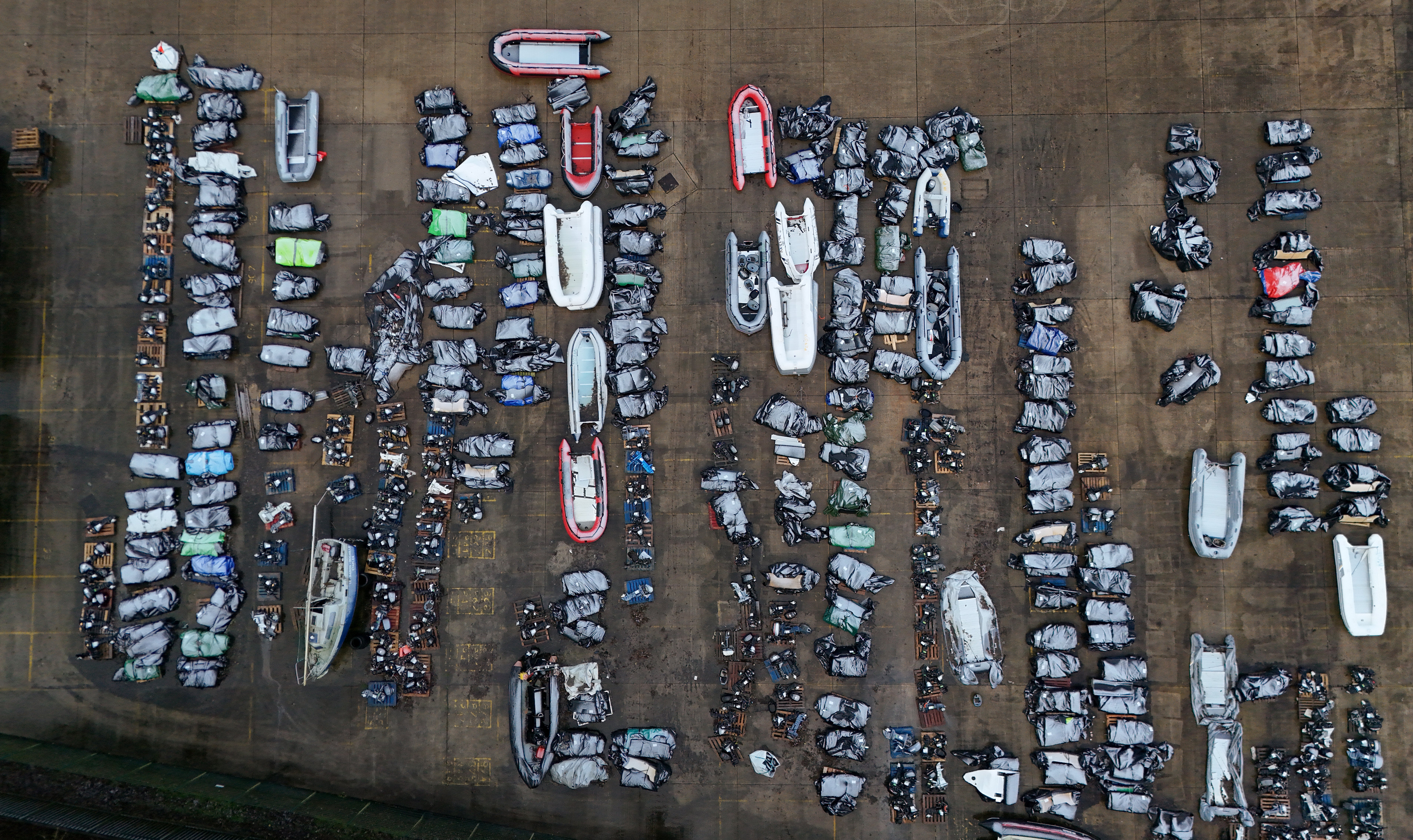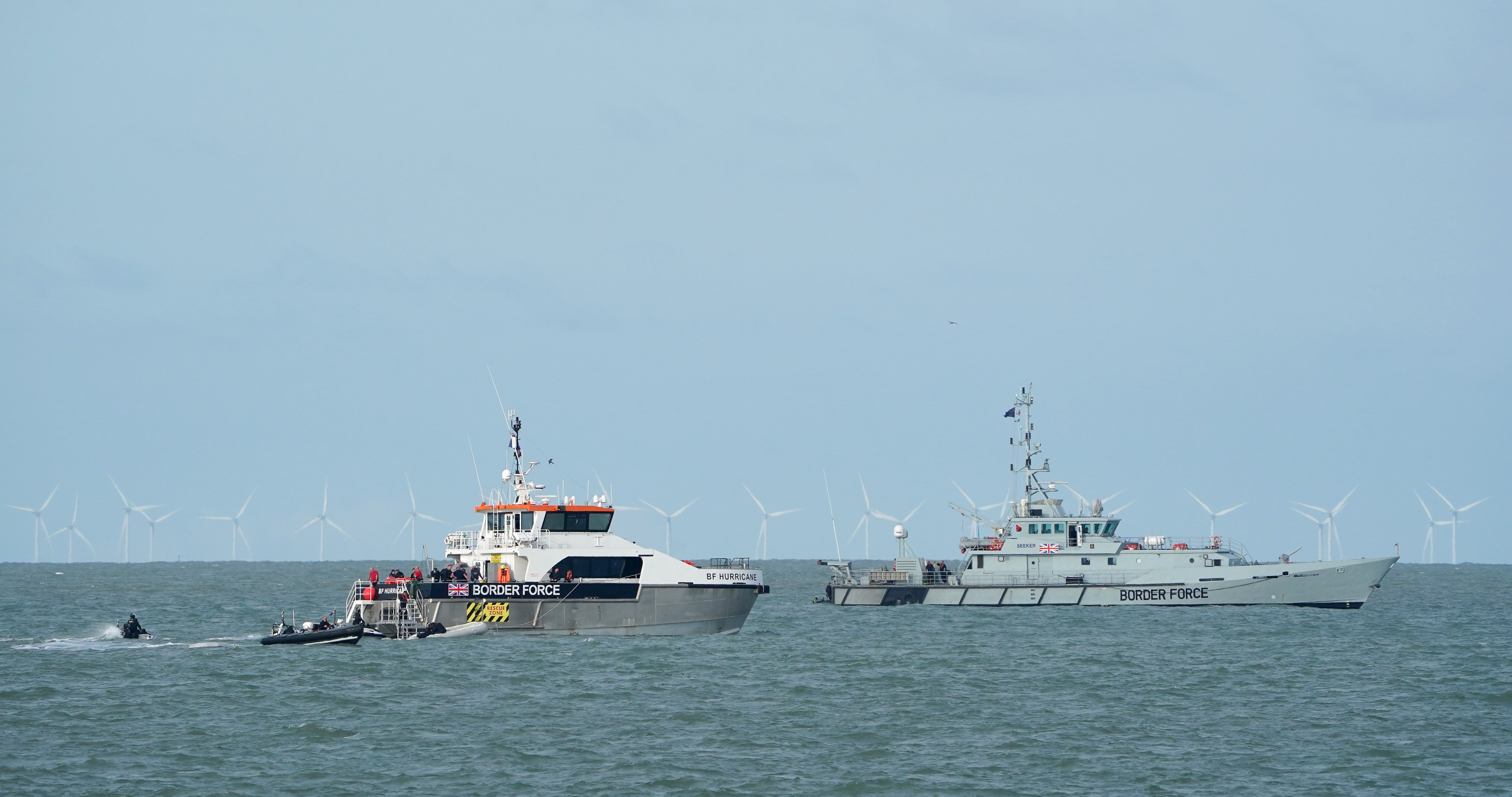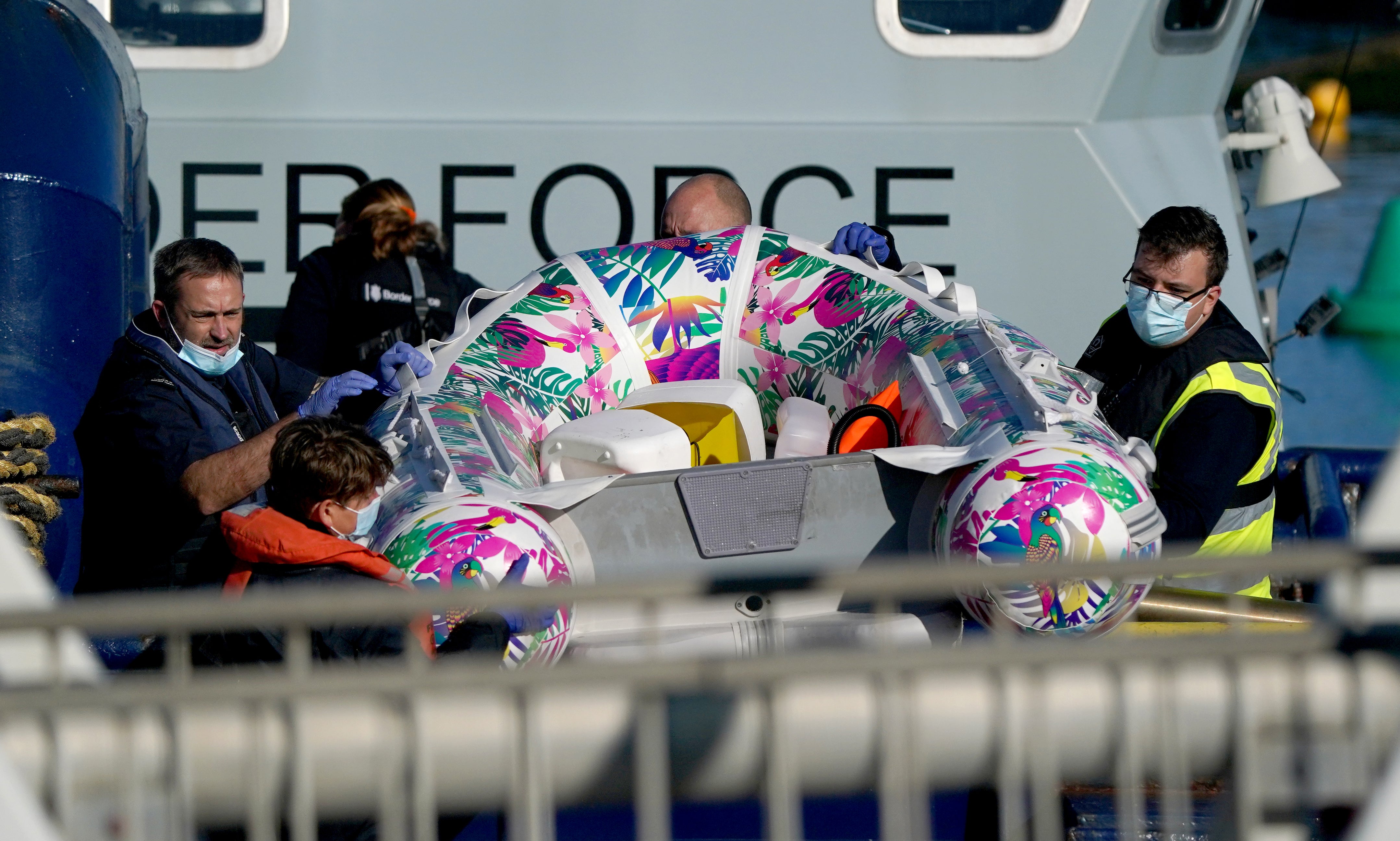ARTICLE AD BOX
Private companies are benefiting from a multibillion-pound industry created by government ministers’ “obsession with tough borders”, The Independent can reveal – as charities, academics and campaigners urge ministers to “turn off this tap of taxpayer cash”.
Data collected by academics at the Universities of Sheffield, Liverpool, York and Nottingham on 200 contracts for border management shows around £2bn worth of contracts have been issued by governments since 2017.
They include contracts for escorting migrants to detention centres, refurbishment of deportation sites, the costs of removing small boats once they get to Dover, and costs bussing Border Force staff to and from France.
While government contracts show the estimated value of the work, they do not show the amount of money the company actually receives, making actual revenue from border security harder to map.
Researchers predict that the UK industry is expanding, with an additional £1bn in open tenders as of December 2024. Globally, the border security market is projected to grow from $377bn (£280bn) in 2023 to $679bn by 2032.
The academics have slammed the lack of public accountability over the amounts of money spent on Channel security.
They used a combination of the government’s contact finder service, ContractFinderPro, the EU tendering portal, and data from think tank Tussell to identify relevant contracts. They included contracts that are solely for the management of the Channel, contracts that relate to the processing of asylum seekers who arrive by small boats, and contracts for Border Force surveillance more generally.

Small boat crossings in the Channel started to emerge as a means of reaching the UK around 2018, when 299 people made the journey, according to data from the Migration Observatory.
This then increased to 1,843 in 2019, and 8,466 in 2020. By 2022, which was the peak year for crossings, over 45,000 people were detected crossing the Channel in small boats. Last year, more than 35,000 people were recorded.
Some of the largest value contracts identified included an award of up to £514m to Mitie Care and Custody for managing short-term holding facilities for migrants and escorting them in the UK and abroad from 2018 to 2028.
Serco were awarded a £276m contract to run two detention centres in Gatwick. They also have a £52m contract running till 2027 to search lorries and escort people in northern France.
Construction firm Galliford Try was awarded a £170m contract for redeveloping detention facilities, Haslar immigration centre and Campsfield removal facility. Labour has decided to continue with plans originally drawn up under the Conservatives to refurbish the sites in Oxfordshire and Hampshire to provide 290 beds in the first phase.
American defence tech company Leidos has a contract for helping develop biometrics, and finger-printing capabilities to support UK law enforcement and immigration, which is worth over £96m.
Management consultants Deloitte and Accenture have also won contracts worth millions connected to border security and small boats. Deloitte had a £3.9m contract in 2023-24 for supporting the Home Office’s small boats arrivals team, as well as a £9.5m deal for helping to “digitise the border”.

Accenture helped with IT platforms for Border Force, and immigration enforcement programmes.
Tamzen Isacsson, chief executive of the Management Consultancies Association, said it was cost-effective for the government to use “these experts for short-term projects that enhance the efficiency and delivery of essential national services, such as border security”.
Mr Isacsson added: “We have provided surge capacity for the government and also negotiated better commercial strategies and contracts for them with other suppliers. One award-winning project enabled the government to find additional housing capacity for destitute asylum seekers.
“We are fully committed to working with the government to maximise the value of our work, which is heavily scrutinised by government commercial officers and our member firms are procured through competitively tendered Crown Commercial Service frameworks, which evaluate bidding firms against quality and cost criteria.”
Smaller contracts identified also include £4,000 for life raft concept development, £7,000 for the collection, unloading and transportation of small craft seized by Border Force, and £10,000 on the maintenance of inflatable rafts.
Tim Naor Hilton, chief executive of Refugee Action, said: “Successive governments’ obsession with tough borders has created a boom for private contractors while record numbers of people drown off our south coast.
“Perversely, some of these companies making profit from this border misery also work in industries such as defence that displace people in the first place.

“At Refugee Action, we see this play out in the accommodation system, where firms make eyewatering profits while people languish in segregated and unhealthy housing.
“The government must turn off this taxpayer cash and start to invest in solutions that will make positive changes to the lives of refugees and communities that welcome them.”
A spokesperson from research and training organisation Corporate Watch said: “Many companies that appear on this list are not only gaining massive profits from Border Force contracts but also collectively reap billions from work across multiple sectors, including the NHS, defence, education and social services.
“People continue to seek safety and asylum as a direct result of wars, climate-driven chaos and political unrest that many of these same companies also profit from.”
Dr Joe Turner, from the University of York, said: “Keir Starmer, in his mission to ‘smash the gangs’, stated in January 2025 that ‘if you’re going to smash a gang that is driven by money, follow the money’. That is precisely what we have done. We have followed the money – and uncovered how the UK government is routinely awarding vast sums to a network of private firms.”
A Home Office spokesperson said:“We all want to end dangerous small boat crossings, which is why this government has put together a serious plan to tackle people-smuggling gangs, dismantle their business models and bring them to justice.
“Through international intelligence sharing under our Border Security Command, enhanced enforcement operations in Northern France and tougher legislation in the Border Security and Asylum Bill, we are strengthening international partnerships and boosting our ability to identify, disrupt, and dismantle criminal gangs whilst strengthening the security of our borders.
“This Government has ended the Rwanda partnership to save the taxpayer hundreds of millions of pound and to invest in boosting our border security.”









 English (US) ·
English (US) ·